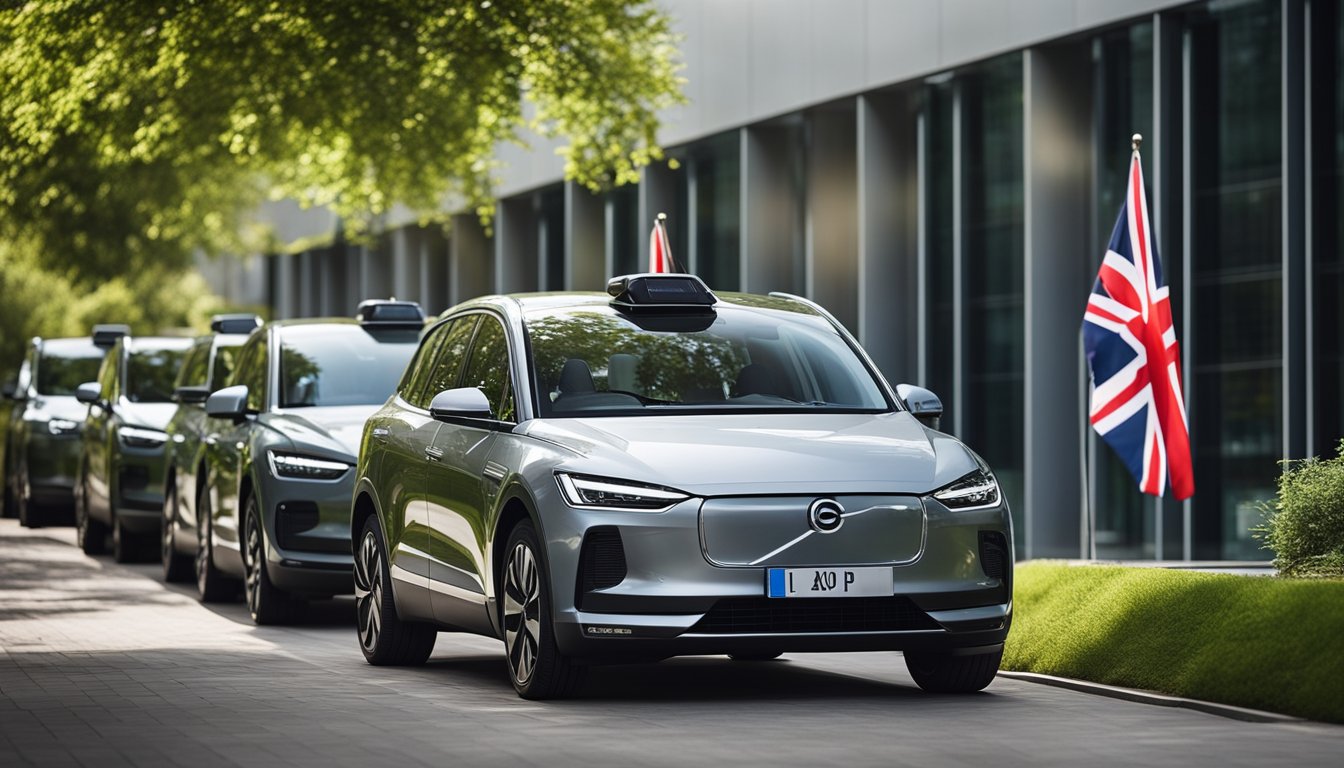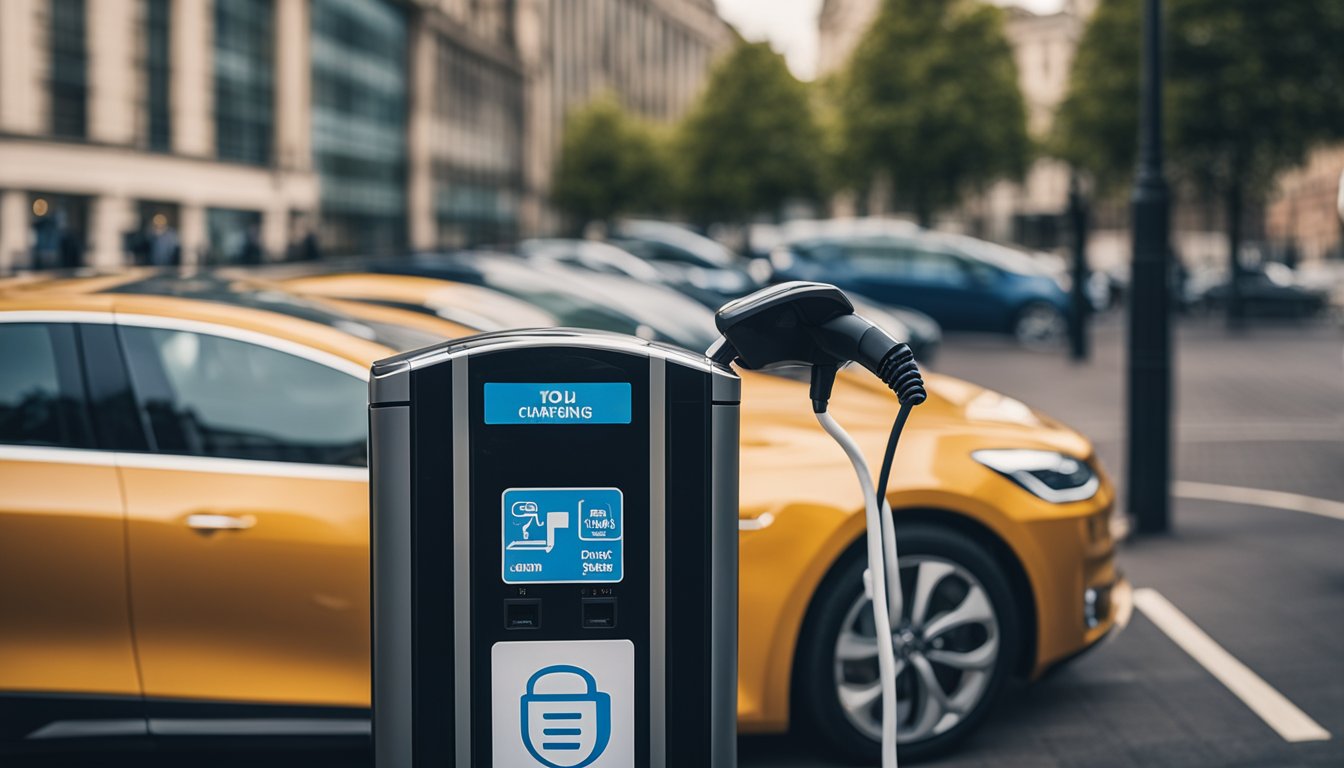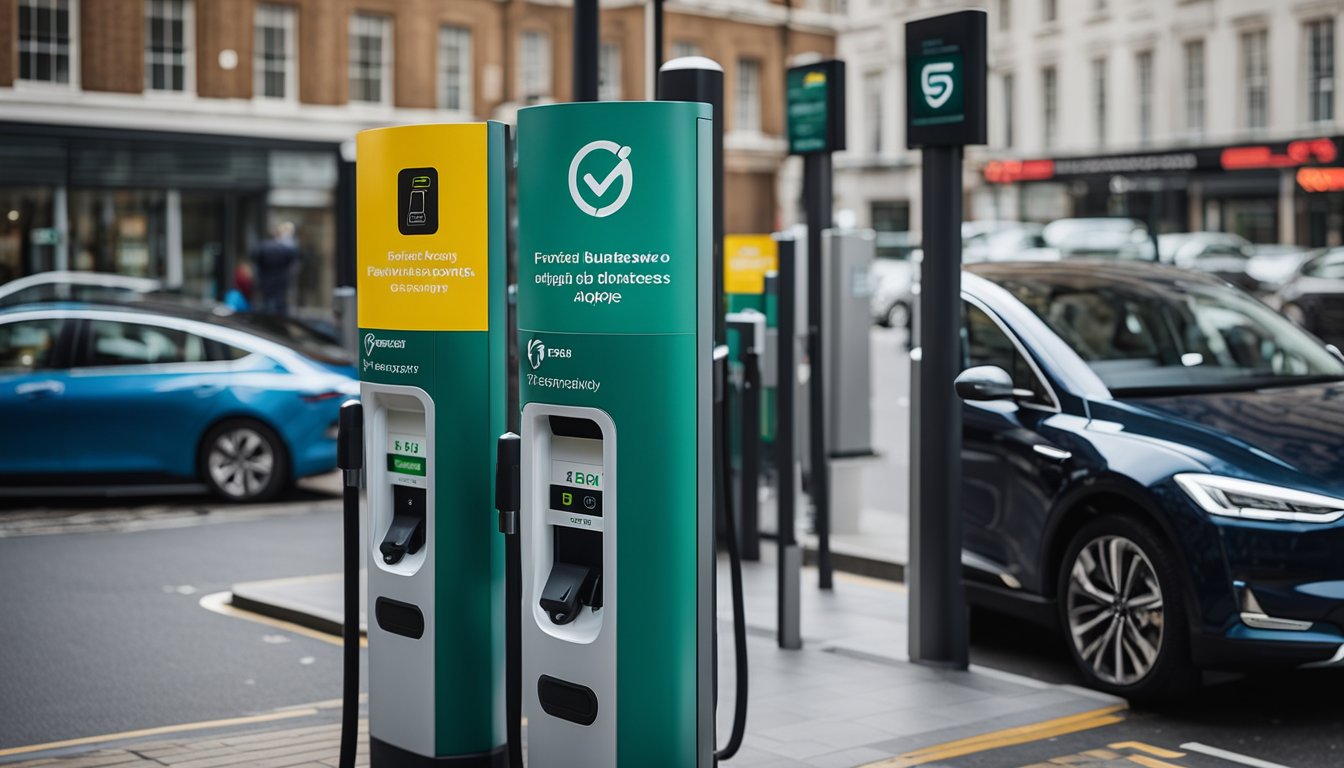Late updated: 25 Jan 2025 09:01
Written by: Amber Collins
Adopting Electric Vehicles For UK Business Success: A Strategic Advantage
Transitioning to electric vehicles (EVs) can significantly boost business success for companies in the UK. Adopting EVs not only aligns companies with sustainability goals but offers considerable cost savings over time, especially with reduced fuel and maintenance expenses. As battery technology advances, reliance on cleaner energy sources becomes essential for enterprises aiming to meet environmental benchmarks and gain consumer trust.

Electric vehicle adoption is not just about reducing emissions; it's about enhancing operational efficiency and competitiveness. With the UK's push for zero-emission vehicles by 2035, businesses are strategically positioned to be at the forefront of this transformative journey. Integrating EVs into corporate fleets can improve brand image, attract environmentally conscious customers, and provide tax incentives that support financial growth.
To make the most of this shift, companies must consider crucial factors such as charging infrastructure, government policies, and the practicalities of EV integration into day-to-day operations. As we explore the nuances of this transition, we will uncover how businesses can smoothly and effectively embrace this new era of transportation.
Key Takeaways
- EV adoption is crucial for cost savings and sustainability.
- Efficient integration requires attention to charging infrastructure.
- Strategic alignment with environmental goals enhances competitiveness.
Strategic Benefits of Electric Vehicles for Businesses
Adoption of electric vehicles presents multifaceted benefits for businesses. These include reducing environmental impact, achieving economic efficiency, and enhancing brand reputation. Let’s explore each aspect in detail:
Decarbonising Corporate Operations
In an era focused on sustainability, electric vehicles play a pivotal role in reducing a company's carbon footprint. EVs produce zero tailpipe emissions, aligning with the UK's net zero targets and reducing greenhouse gas emissions.
Businesses can make a meaningful impact by incorporating electric vans and fleet vehicles. Utilising renewable energy to charge these vehicles further drives decarbonisation efforts, solidifying our commitment to environmental responsibility.
This strategic move not only helps meet sustainability goals but also positions businesses as leaders in climate action. While enhancing our environmental credentials, we contribute directly to cleaner air quality and public health improvements.
Economic Advantages of Electric Fleet Adoption
Switching to electric vehicles presents significant economic benefits. Lower operational costs, driven by cheaper energy prices compared to fossil fuels, offer direct cost savings.
Government incentives, like capital allowances and reduced vehicle excise duty, further sweeten the deal. These tax breaks and subsidies make the initial investment more attractive.
Electric vehicles often have fewer mechanical parts, leading to reduced maintenance expenses. As operational cost savings accumulate, the return on investment becomes clear, supporting a robust financial strategy.
Enhancing Corporate Image
By adopting electric vehicles, businesses can significantly improve their corporate image. This shift demonstrates a genuine commitment to sustainability and innovation.
Our brand reputation is enhanced as we align with environmentally conscious values. It appeals to eco-aware customers and clients who prioritise responsible business practices.
Promoting this shift actively, we differentiate ourselves in a competitive market. Leveraging our green initiatives, we build trust and loyalty, resonating with stakeholders who value sustainable progress.
Practical Considerations for EV Integration

Integrating electric vehicles (EVs) into UK businesses involves several considerations. These include developing robust charging solutions, understanding relevant financial incentives, adopting smart technologies, and managing energy expenses.
Charging Solutions and Infrastructure
A reliable charging infrastructure is critical to support the expansion of EVs. Businesses must prioritise the installation of EV chargers at their premises. Workplace charging schemes are essential for supporting employees driving company cars or van fleets.
Fleet operators must analyse the charging patterns of their vehicles to optimise the number and locations of charging points. Public charging networks should also be considered for comprehensive support. By combining workplace, home, and public charging options, businesses can significantly enhance their EV uptake and ensure a smooth transition from internal combustion engines.
Financial Incentives and Policies
UK government policies and financial incentives play a pivotal role in encouraging businesses to adopt EVs. Companies can benefit from grants for charger installation, making it more cost-effective to equip their sites with necessary infrastructure.
Businesses can reduce costs by utilising grants that support the shift from petrol and diesel vehicles to EVs. These incentives, aligned with the government's push for net zero, help ameliorate initial expenses. Operational cost savings from reduced fuel and maintenance expenses further strengthen the financial case for adopting EVs.
Adopting Smart Charging Technologies
Smart charging technology offers the advantage of managing energy consumption efficiently. These technologies enable businesses to schedule EV charging during off-peak electricity periods, reducing costs and easing pressure on the grid.
Adoption of smart charging is particularly beneficial for van fleet operators, who can automate and optimise charging based on fleet needs. Integrating smart systems with solar panels can further enhance sustainability by using renewable energy to charge vehicles. As such, smart charging technologies are vital in managing energy usage effectively.
Managing Energy Costs
One of the most significant aspects of EV integration is managing the cost of energy. With the increased demand due to EV charging, businesses must explore solutions to mitigate energy costs. Implementing smart meters can provide insights into energy consumption patterns, enabling better cost management.
Renewable energy sources, such as solar panels, can help offset energy costs and lessen dependence on the grid. Additionally, businesses can capitalise on time-of-use tariffs to charge vehicles during cheaper rate periods. By adopting these strategies, we can effectively manage energy costs while promoting sustainable practices in our operations.
Frequently Asked Questions

Our exploration delves into financial incentives, environmental impacts, market projections, infrastructure adequacy, cost savings, and operational comparisons for electric vehicles in UK businesses.
What financial incentives are available for UK businesses adopting electric vehicles?
UK businesses can benefit from several financial incentives, such as government grants and tax breaks. These include the Plug-in Car Grant and tax incentives for zero-emission vehicles. Additionally, leasing options with reduced taxes are available to help ease the transition to electric fleets.
How do electric vehicles impact the carbon footprint of a UK business?
Switching to electric vehicles significantly reduces greenhouse gas emissions. This shift supports businesses in meeting sustainability goals. As electricity generation in the UK increasingly relies on renewable sources, the carbon footprint of EVs further decreases, enhancing environmental benefits.
What is the projected market share of electric vehicles in the UK automotive sector by 2030?
By 2030, electric vehicles are expected to dominate the market, accounting for a substantial portion of new vehicle sales. This aligns with the UK's plan to cease the sale of new petrol and diesel vehicles by 2030, moving towards full zero-emission sales by 2035.
Are there sufficient charging infrastructures in place to support electric vehicles in the UK business context?
Charging infrastructure is rapidly expanding across the UK, addressing one of the primary concerns for businesses. Investments in both public and private charging solutions are increasing to accommodate the growing number of electric vehicles, thus reducing range anxiety and supporting seamless business operations.
What are the long-term cost savings for UK businesses transitioning to an electric fleet?
Over time, electric vehicles offer significant cost savings in terms of fuel and maintenance. Though the initial purchase price is higher, lower operating costs and government incentives help offset these expenses. Businesses can therefore achieve greater economic efficiency while enhancing their environmental impact.
How does the maintenance and operational cost of electric vehicles compare to traditional vehicles for UK businesses?
Electric vehicles typically require less maintenance due to fewer moving parts. This results in lower repair costs and reduced downtime. Operational costs are also lowered through cheaper electricity compared to petrol or diesel, marking a shift towards more sustainable and budget-friendly business practices.
